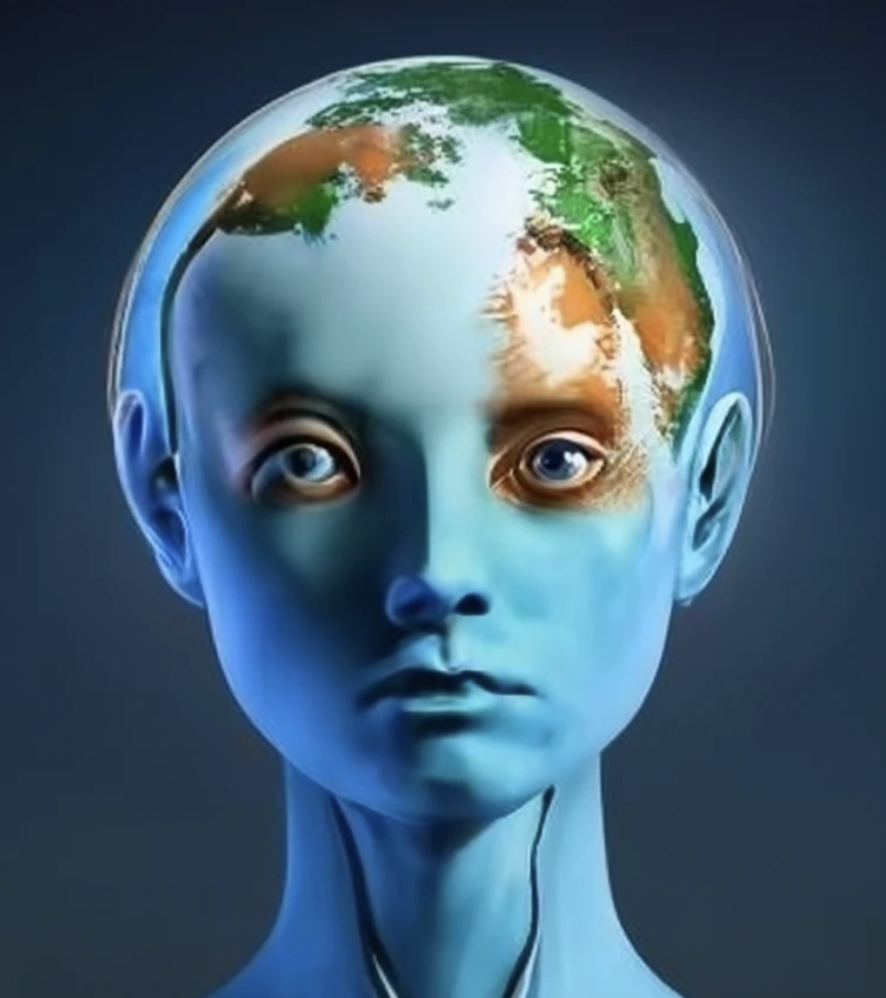

 |
 |
| About Us |
|---|
| A Project to Envision and Explore Possible Climate Futures |
|---|

Based on ice cores, tree rings, and coral deposits, scientists have determined that 2023 was likely the hottest year in the last 125,000 years equaling or surpassing the Paris Agreement target of 1.5ºC warming above the preindustrial average global temperature. Due to human caused greenhouse gas emissions future years will be even hotter.
In the 2024 Spring Semester Western Michigan University students in English/Environmental Studies 4120 taught by Dr. Allen Webb engaged in an experiment to collaborate with ChatGPT to write stories about the climate future.
Envisioning the climate future, and what can be done to influence it, was the focus of the course. The course began by students reading Our Final Warning by Mark Lynas (2020) which sets forth scientific understanding (via modelling and paleoclimatology) of what will happen to the earth as global temperatures increase. That book is in six chapters, describing increasing warming degree by degree celsius up to six degrees, the most extreme temperature considered possible by the scientists of the Intergovernmental Panel on Climate Change (IPCC) by the year 2100. (A date perhaps within the life time of students in the course.)
So the stories the students create are told -- and our website organized -- by increasing degrees of global heating from two degrees to six degrees.
Drawing on their knowledge of expected climate futures students worked with ChatGPT to create the cli-fi short stories published on this website. The project assignment included writing a diversity of stories, picking the best one, working more extensively with that best story, using an AI image program to create a corresponding image, and writing an analysis of the stories and the process of writing with ChatGPT.
Comments from students about the project:
Kaely Cooper: Our stories contained a future president, scientists, mothers and their children, and billionaires. There are endless outcomes that the world could end up facing due to the climate crisis. This assignment opened my eyes to truly how different the future can and will look. And these are just the possibilities that we believe as feasible and can come up with in our imaginations. There are so many events that may happen that humans cannot even fathom and we will have to find a way to try and survive when they occur.
Eden Scott: I learned that the future seems bleak. I'd like to believe humans will do the right thing and protect the earth, but there are a lot of stories of people living in the aftermath of not taking care of the planet. I find it hard to write positively about this subject.
Griffin Harmer: One of the biggest things I took away from this assignment was the fact that the climate change path isn't mapped out, we don't know what it's going to do to society or how it's going to change our lives. I found it interesting that in my stories, a lot of them had a government shutdown which is concerning to me. I can’t help but think when if we continue on our current path, how far away is total society collapse and what people will do when they have to survive by any means necessary? This project showed me how all the different futures described in the stories might be possible in the future if we do not start taking care of our planet.
Jackson Hammerschmidt: I think that it is important to realize this is not something we can run from. We are all facing the same problem, which is global warming. We may not be directly affected right now, but if we continue on this path, it will affect us. The different possibilities of the future are solely dictated by how we act now. These stories prepare us and organizations to advocate for policy changes, sustainable practices, and collective action. Writing is one of the most impactful thing we can do. People need to know what our changing climate is capable of doing to our lives.
| Home | AI Writing | More Cli Fi Stories | About Us |